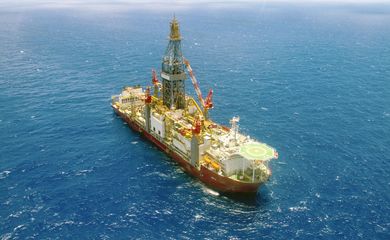Petrobras: Brazil may have to import oil in 2034

Without the oil production from the equatorial margin—the area off Brazil’s northern coast whose potential has been described as akin to pre-salt layers—the country may have to import oil again within ten years.

The statement was made in Rio de Janeiro on Thursday (Oct. 24) by Petrobras’ Director of Exploration and Production Sylvia Anjos, and is part of the state-owned company’s efforts to obtain a license to explore the region.
“Timing is critical. In five, six years there will be a drop in pre-salt production. As a result, we could become an oil importer again in 2034, 2035, if we don’t have any discoveries,” she said at an open lecture at the Federal University of Rio de Janeiro.
The equatorial margin covers an area on the coast of the states of Rio Grande do Norte to Amapá. The exploration is criticized by environmentalists, who are concerned about possible environmental damage.
Petrobras has 16 wells in this new exploratory frontier, which includes the mouth of the Amazon River. However, it only has authorization from environment authority Ibama to drill two of them. The company has asked the institute to reconsider its decision and grant permission for other areas.
Environment
Petrobras, the director said, has solved Ibama’s requirements for license—including the creation of a center for sheltering animals in the event of an oil spill; the guarantee that there will be no overcapacity at Oiapoque Airport, in Amapá; and the simulation of environmental emergency exercises.
However, even if the license were granted today, Petrobras acknowledges it would take around three months for drilling to begin.
Director Sylvia said that, off the coast of Rio Grande do Norte, where permission has been granted, two wells are already being drilled, but no opinion has yet been expressed on their economic viability, i.e. whether the amount of oil found is profitable.
Energy transition
The director believes there is no conflict between the country’s environmental policy of reducing greenhouse gas emissions and its interest in oil exploration. She explained that Petrobras uses technology that produces less carbon dioxide.
She also argued that oil will continue to be in demand around the world for decades to come, both as a source of energy and as a raw material for the petrochemical industry, which produces a wide variety of items, as well as plastics.
“Which oil will be present? The one with the lowest emissions. In this sense, pre-salt emissions are between seven and nine kilos of carbon dioxide per barrel. The global average is 17kg; 20kg for some large-sized fields,” she noted, adding that Petrobras’ production will reach negative carbon emissions before 2050.






